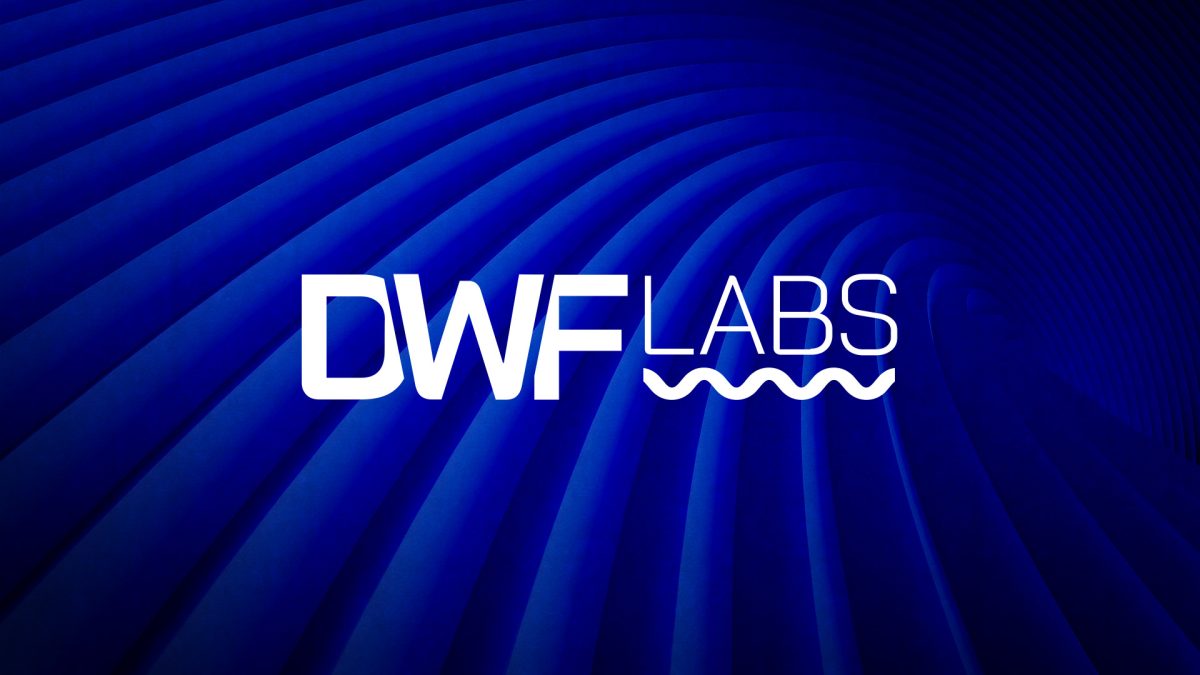DWF Labs is ruffling feathers as it climbs the ranks of crypto’s most active investors

Quick Take
- DWF Labs has grown from obscurity to become one of the most active investors in crypto this year.
- But behind the boom, some in the industry see red flags in its opaque investment structures and habit of shifting its token investments to exchanges.
- DWF is pushing back, saying it doesn’t see anything wrong with its practices.

DWF Labs is raising eyebrows — and ruffling feathers — as it storms up the charts of the crypto sector’s most active investors.
Through a turbulent six months for the industry marked by scandal, bankruptcy and a U.S. regulatory clampdown, DWF Labs has stepped from obscurity into the limelight. The Block Pro’s deals dashboard tallies $232 million invested across 25 fundraising rounds, 18 of which had DWF as the sole investor, while the firm itself says it has poured at least $100 million into more than 100 projects.
DWF’s outlays have prompted speculation about its funding and why many of its venture capital deals appear to have opaque, non-standard structures — drawing comparisons with Alameda Research, the hedge fund and market maker founded by former FTX CEO Sam Bankman-Fried that imploded last year. In its defense, DWF has responses for all questions raised against it.
“I’ve seen this playbook before and it ends with retail getting burned and SEC enforcement actions,” said Matt Walsh, founding partner at Castle Island Ventures. “This industry doesn’t need Alameda 2.0.”
Founded in 2018 by managing partner Andrei Grachev — an alumnus of Huobi Russia and various crypto trading firms — DWF Labs bills itself online as a leading “digital asset market maker and multi-stage web3 investment firm,” with a presence in Singapore, Switzerland, the United Arab Emirates and the British Virgin Islands. It’s an affiliate of Digital Wave Finance, an entity with little online profile that DWF Labs’ website describes as “one of the world's largest high-frequency cryptocurrency trading entities, which trades spot and derivatives markets on over 40 top exchanges.”
DWF Labs questions
At the heart of concerns about DWF’s practices are the way agreements to trade startups’ tokens are sometimes represented as venture capital investments and its habit of moving those tokens to exchanges, allowing them to be sold.
To start with the deal structures, many industry figures raised concerns with The Block that some of DWF's multimillion-dollar investments in crypto startups would be better described as over-the-counter trades. Instead of an upfront cash infusion, these OTC deals allow startups to switch their tokens for stablecoins — with DWF then shuffling the tokens to exchanges.
“All these ‘investments’ that you’re seeing are not actual investments,” said a person with direct knowledge of DWF’s operations. “They’re OTC deals. They are all token purchases. They are OTC transactions that are transacted over time.”
DWF Labs' 'commitments'
In late February, for example, crypto privacy startup Beldex announced a $25 million deal with DWF. In a blog post, Beldex said DWF Labs would support it “by committing $25 million for the research and development of the Beldex network and ecosystem.” The word “committing,” however, was lost in some coverage of the deal, which instead portrayed it as a straightforward fundraise. A Beldex spokesperson told The Block at the time that the money had in fact been pledged over a period of two years.
The same spokesperson said this week that DWF is still involved with the project as its “marketing and partnership counsellor,” while also helping with introductions to others in the industry including developers and researchers. It is an arrangement that has proved “immensely beneficial for Beldex,” they added.
And just this week CryptoGPT announced raising $10 million in a Series A funding round from DWF Labs at an eyecatching $250 million token valuation. Only $420,000 of the total amount has thus far been invested, however, CryptoGPT co-founder and CTO Dejan Erja told The Block. DWF began investing last week and the rest of the amount will be invested over 285 days, Erja said. As part of the deal, DWF Labs will also make a market for CryptoGPT's GPT token.
DWF's 'ill-advised' deals
“The type of projects and the amounts DWF Labs is reportedly investing in them doesn’t really make sense to me," said Bainy Zhang, the founder of Fisher8 Capital and eGirl Capital who goes by the pseudonym Hedgedhog on Twitter. "Both seem ill-advised. The amounts DWF is supposedly investing in projects make up a very high percentage of the token supply of those projects. For example, $25 million for Beldex is 5% of their FDV [fully diluted valuation], assuming DWF paid the market price.”
Such deals can have a huge impact on the price of a project’s token once they’re made public. In the days after the arrangement with Beldex was announced, the price of its BDX token climbed by about 50%, from $0.04 to $0.06, according to CoinGecko data. It is now at around $0.057.
A project named Tomi, which aims to build an alternative internet, said it had raised $40 million from DWF Labs on March 22. In short order, its token ballooned in price from $1.30 to as high as $4.30 before falling to the current price of around $2.58, according to CoinGecko. There was also a price bump following a report by The Block on DWF Labs’ commitment to purchase $10 million in tokens issued by Orbs, a crypto infrastructure project.
'I don’t see anything wrong here'
In an interview, Grachev was unapologetic when asked about the confusion between whether its investments were up-front venture capital checks or a drip-feed of over-the-counter token trades.
“We deploy our money and we deploy it based on our risk management. I frankly don’t see anything wrong here,” Grachev said. “I don't care what other market makers/investors are doing. Because our main goal is not to mirror what other market players do. Our goal is to make our partners happy.”
Moving on to the question of DWF transferring its token investments to centralized crypto exchanges, it's not hard to find people citing on-chain data to highlight this practice and wondering whether this means DWF is selling the tokens.
Asked about these movements, Grachev pushed back against suggestions the firm was selling in order to book a profit. Instead, he said DWF found keeping tokens on exchanges to be more secure than using an on-chain wallet.
“We transfer coins to exchanges, but we never dump it,” Grachev said in an interview. “If we send coins to exchanges, it doesn't mean that we sell these coins immediately or in a near period of time. We always send coins to exchanges because we store coins on the exchanges. For us, it's a much more comfortable way to manage our inventory.”
In a separate Twitter thread this week, he added: "Crypto MM [market makers] has to be ready for emergency situations and extreme volatility and has an available inventory of coins and stablecoins for liquidity purposes 24/7."
DWF’s funding situation
DWF’s spending spree has also prompted some in the industry to wonder where its funds are coming from. Grachev said DWF Labs has no outside investors and its funds have been amassed from its trading activities since the firm was founded in December 2018. It also has some crypto-based loans.
In addition to running DWF Labs, Grachev’s LinkedIn profile says he has held several other positions over the past five years — all involving trading and cryptocurrency.
He served as chief executive of a high-frequency trading firm named VRM.Trade from 2018 until June last year. He was VP of trading at a company named Racib in Moscow from May 2018 until July the following year. Prior to that he ran another crypto firm called Crypsis Blockchain Holding, also while based in Moscow, according to LinkedIn.
Grachev also did a stint as CEO of Huobi Russia, an offshoot of the Chinese crypto exchange, for a year from September 2018. Huobi Russia closed in 2020. “Due to a strategic shift within Huobi Group, the two parties reached an agreement to terminate this partnership,” said a spokesperson for Huobi.
While Grachev — both in interviews with The Block and on social media — is keen to push back against suggestions of wrongdoing, plenty of people in the crypto industry have lingering concerns.
"DWF has come from nowhere to investing tens of millions of dollars in — largely — OTC token deals every week during a time where most other VCs are tightening their purse strings," said Matthew Howells-Barby, an angel investor and former chief marketing officer at Decentral Games. “Something doesn’t feel right."
Disclaimer: Evgeny Gaevoy, the founder and CEO of DWF Labs competitor Wintermute, sits on The Block's board of directors and is a shareholder.
© 2025 The Block. All Rights Reserved. This article is provided for informational purposes only. It is not offered or intended to be used as legal, tax, investment, financial, or other advice.













